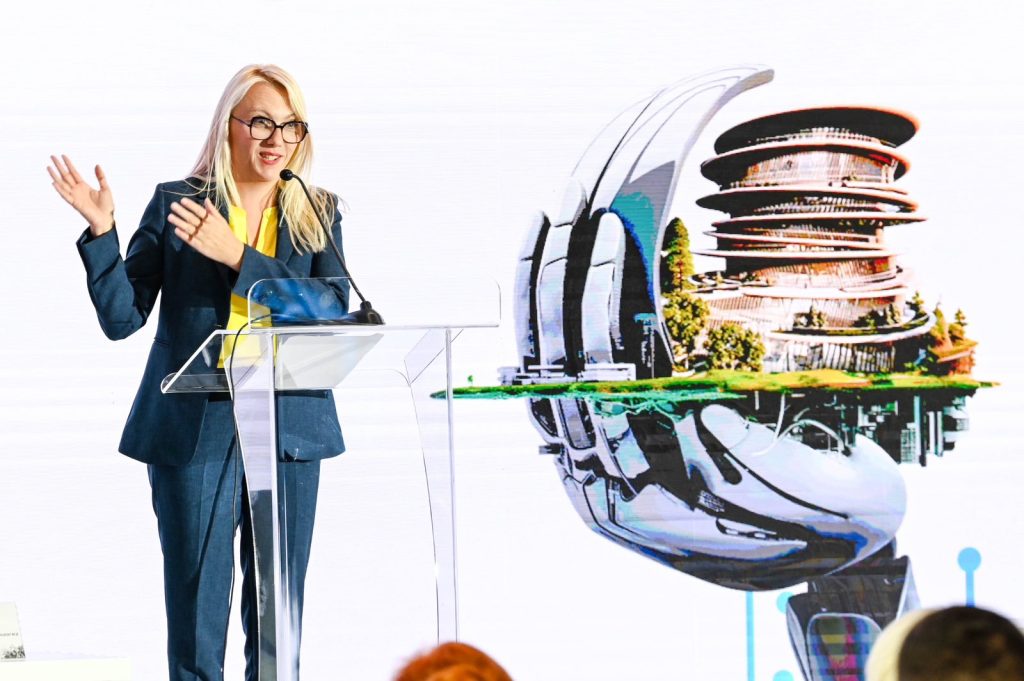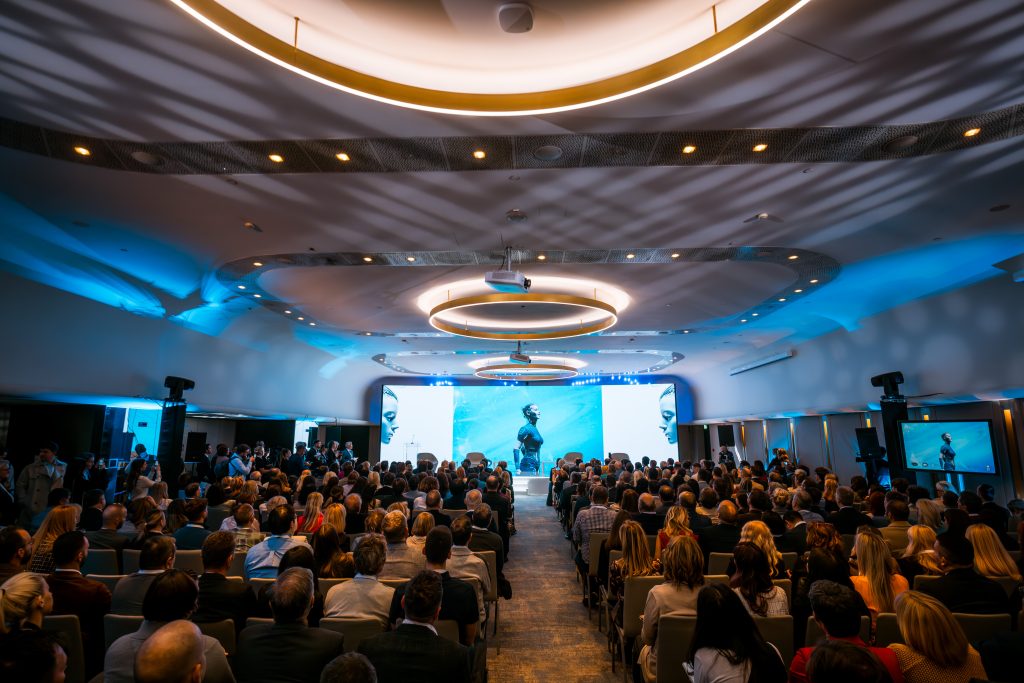The Prime Minister of Serbia, Ana Brnabić, and the President of the World Economic Forum, Børge Brende, today officially launched the Centre for the Fourth Industrial Revolution Serbia (C4IR Serbia) as part of the Biotech Future Forum, which was held today in the Palace of Serbia in Belgrade.
C4IR Serbia was founded in March as a partnership between the Government of Serbia and the World Economic Forum. The centre is part of the global network of C4IR centres, acting as the foremost global platform for helping leaders anticipate exponential technologies and accelerate their inclusive and sustainable adoption.
With 16 centres across the network, C4IR Serbia is the first to lead on biotechnology and artificial intelligence for healthcare. The centre has already been pivotal in establishing cross-network collaboration and generating international learnings, while supporting the new biotechnology community in the country and helping to position Serbia as a country of new technologies, knowledge and innovation.
The Prime Minister of the Republic of Serbia, Ana Brnabić said, “I am extremely pleased and honoured that Belgrade is the host of the first International Conference on the Future of Biotechnology. I hope that this is just the beginning for us, and the first step for Serbia to position itself among the leaders in the field of biotechnology in Europe. Science, innovation, technology, and creativity are our strengths, and thanks to this, Serbia has transformed in the last 10 years. Biotechnology, biomedicine, bioinformatics, and biodiversity will be among the most important priorities of the new Government and will be the focus of the work of the BIO4 Campus.”
Addressing the conference participants, Børge Brende, President, World Economic Forum said: “With the establishment of the centre in Belgrade for the Fourth Industrial Revolution earlier this year, the World Economic Forum and the Government of Serbia are committed to supporting the accelerated adoption of emerging technologies in Serbia. Launching the centre at the Biotech Future Forum is a primary example of the contribution the centre already makes in bringing together local and international stakeholders to address critical opportunities and challenges to advance the benefits of biotechnology.”
Achim Steiner, Administrator of the United Nations Development Programme said, “UNDP is supporting the Government of Serbia in the digitalization process and to roll-out a range of digital solutions benefiting businesses and citizens. To help Serbia reap the benefits of biotechnology, not just for itself, but also for the progress of the region and beyond, we have been assisting the work of the new Centre for the Fourth Industrial Revolution in Belgrade. It is our joint task to create adequate regulation, and ensure that these new technologies are developed, tested, and used for the benefit of the whole society, leaving no one behind.
A leadership panel and four expert focus sessions were held within the Forum, featuring experts in the field of biotechnology. In addition, the discussion covered topics of bioinformatics, bioengineering, data science in health and biotech development, promotion of public policies and scientific achievements and possibilities for their application, especially in the fields of medicine and health. The local community had the opportunity to hear more about examples of good practice from Israel, Germany, US, Great Britain, Brazil, India, Austria, the United Arab Emirates, Turkey, Australia and other countries that are among the leaders in this area. Conference participants were also familiar with Serbia’s biotechnological potential and the activities of our researchers and institutions such as the Institute for Molecular Genetics and Genetic Engineering, BioSens Institute and the Government Data Center.
Biotech Future Forum aims to become a regular annual gathering of the new biotech community in our country and position Serbia as a country of new technologies, knowledge and innovation.





